

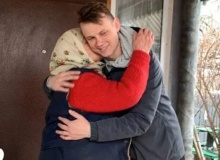
Matias Radziwiluk, director of a Bible Institute in Ukraine, explains the key role of the church in responding to the humanitarian and spiritual challenge.
.jpg)
Our missionary task as Christians and civic leaders must include a mission to the military. Where this need is overlooked, war crimes will continue.
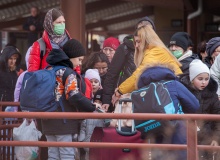
Ukraine Connect has already matched over 90 individuals with a host. It has more than 400 refugees seeking for a place and over 245 potential offering homes.
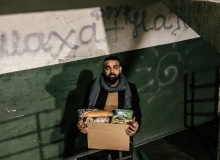
You can tell most of them are not religious people. But now, everybody prays. They say, “We have no hope besides God”.

The Christian musician won five Grammy Awards. “I believe there is a plan for our lives, we are here for a reason”, Batiste said before the gala.
.jpg)
The Kyiv Slavic Evangelical Seminary in Kyiv has confirmed his body was found in the city where Russian troops have been accused of war crimes against civilians.
.jpg)
Brutal killings are denounced by the Ukrainian government and human rights organisations as Russia retires from occupied regions.
.jpg)
The act of consecration by Pope Francis will include this prayer: "O Mother, hear our prayer. Star of the Sea, do not let us be shipwrecked in the tempest of war. Queen of Heaven, restore God’s peace to the world".
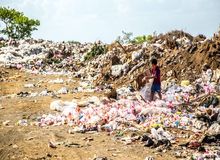
It is the first increase in the last 20 years, says the UN. The conflict in Ukraine is further aggravating the situation.
.jpg)
Who am I inclined to pray for, and who do I tend to dismiss? Where do I draw my lines? And do my lines reflect the heart of God?
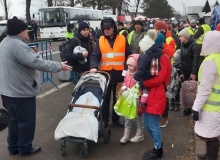
The pastor of a church on the Romanian border with Ukraine explains how, along with a church in Spain, they help refugees to meet their basic needs.
.jpg)
After more than five hours of driving, we reach our destination in Rivne: a warehouse that has been rented by a network of Protestant churches. Three dozen young people are waiting for us to unload the aid.
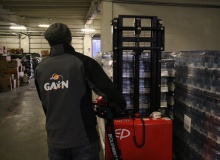
How can we make sure that aid will be useful for Ukrainian refugees? Miqueas Forster of GAiN Spain answers this and other questions.
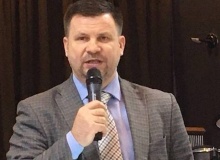
Vitaly Vlasenko, a pastor in Moscow, in an open letter: “As a citizen, I apologize to all those who have suffered, lost loved ones and relatives, or lost their place of residence”.
.jpg)
Ukrainian evangelicals between political and missional responsibilities.
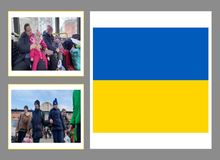
Those who suffer most in conflict zones are children and young people with additional needs and disabilities.
.jpg)
If Jesus' disciples in the comfort of the West simply go on living while complaining about how much more it costs to go out for a nice dinner, we are not obeying the way of Jesus.
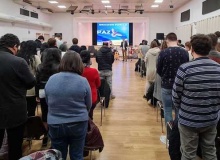
Over 2.3 million have left Ukraine since the start of the Russian invasion two weeks ago. Evangelical congregations on the other side of the continent connect to welcome families fleeing the war.
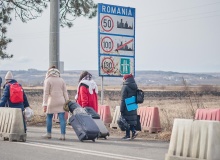
Two million people have already fled Ukraine. Many are unaccompanied children who will suffer “a detrimental psychological impact”, Christian NGOs warn.
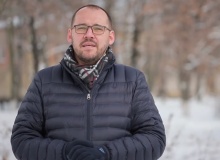
Interview with Ruslan Maliuta, who serves with OneHope and WEA and was global facilitator for World Without Orphans, one week after the beginning of the Russian army's attack on the country. Recorded: 4 March 2022.
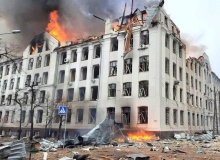
Andrey Tyschchenko is the pastor of an evangelical church in Kharkiv, one of the cities hardest hit by the Russian attack. He is now a refugee in Poland with his family. From there, he organises help to be sent into Ukraine.
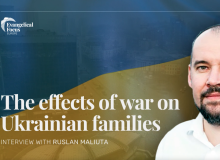
With thousands of families internally displaced and over one million refugees leaving Ukraine, how are families, and especially children, coping? How can the church take action? We spoke to Ruslan Maliuta, who serves with OneHope and WEA and was global facilitator for World Without Orphans, one week after the beginning of the Russian army's attack on the country. Recorded: 4 March 2022.
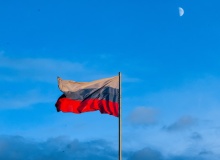
“We need to repent for what we have done, first to God and then to the people of Ukraine”, pastors write in an open letter. Russian authorities impose new restrictions on freedom of speech.
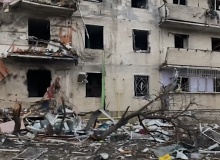
An evangelical journalist living in Kyiv explains how they are experiencing the invasion. The biggest help, she says, is "prayer" and "not be silent" about what they are suffering.
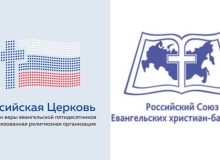
In Russia, evangelical Christians are asking Vladimir Putin to seek a negotiation to “find a peaceful solution”.

Las opiniones vertidas por nuestros colaboradores se realizan a nivel personal, pudiendo coincidir o no con la postura de la dirección de Protestante Digital.